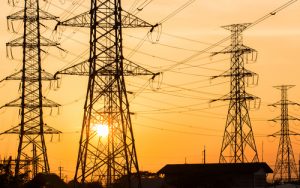
Citing the many challenges facing the nation’s electric grid, U.S. Sen. John Hoeven (R-ND) led four of his Senate colleagues in requesting an update on the Federal Energy Regulatory Commission’s (FERC) grid reliability and resilience docket.
FERC opened its resilience docket in January 2018 to receive public comment on whether markets properly value the resilience and fuel security of traditional baseload resources like coal. While the comment period ended in April 2018, the agency has not taken any measurable actions to advance the docket, according to the senators in a Nov. 18 letter sent to FERC Chairman James Danly.
“Meanwhile, fuel-secure traditional baseload resources continue to close at an alarming rate,” the lawmakers wrote. “By the end of next year, nearly 42,000 megawatts (MW) of coal-fired electric generation will have closed from the time FERC opened the resilience docket.”
“FERC has already gathered public input on the issue of grid resilience, but as we’ve seen during recent events, including California’s rolling blackouts in August, we need clear action to strengthen the grid by stopping the alarming loss of baseload generation capacity,” Sen. Hoeven said. “That’s why we continue pressing FERC to ensure baseload power is fairly valued in regulated markets, while also advancing tools like the 45Q tax credit and CCUS technology to provide a true path forward for our coal producers.”
In their letter, Sen. Hoeven and his colleagues requested that the agency outline the measures it will take to evaluate grid resilience, address the challenges facing grid operators, and strengthen the reliability of the grid.
U.S. Sens. Shelley Moore Capito (R-WV), Kevin Cramer (R-ND), John Barrasso (R-WY), and Mike Lee (R-UT) cosigned the letter, which poses several questions for Danly, including if FERC will consider fuel security attributes in a definition of “resilience” to ensure a reliable and always-on grid.
“Every home and business depends on the grid’s ability to keep the lights on, and this effort is about preserving access to reliable and affordable baseload power, like coal, which can meet the demand for electricity, regardless of weather or time of day,” said Sen. Hoeven.



